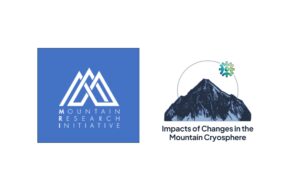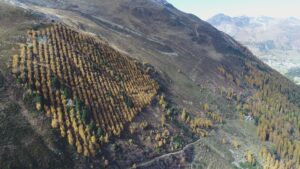SE 3.107
Workshop on Elevation-Dependent Climate Change and Mountain Observatories
Details
Full Title
SE 3.107: Elevation-Dependent Climate Change: Exploring Statistical Methods, Driving Mechanisms, and the Role of Mountain ObservatoriesScheduled
Session:
2025-09-19, 08:30 - 10:00 (LT), Theologie – MS
Session:
2025-09-19, 10:30 - 12:00 (LT), Theologie – MS
Session:
2025-09-19, 13:30 - 15:00 (LT), Theologie – MS
Break out group:
2025-09-19, 13:30 - 15:00 (LT), Theologie – SR VI
Session:
2025-09-19, 16:00 - 17:30 (LT), Theologie – MSSession:
2025-09-19, 08:30 - 10:00 (LT), Theologie – MS
Session:
2025-09-19, 10:30 - 12:00 (LT), Theologie – MS
Session:
2025-09-19, 13:30 - 15:00 (LT), Theologie – MS
Break out group:
2025-09-19, 13:30 - 15:00 (LT), Theologie – SR VI
Session:
2025-09-19, 16:00 - 17:30 (LT), Theologie – MSConvener
Co-Convener(s)
Ferguglia, Olivia; Shahgedanova, Maria; Palazzi, Elisa; Thornton, James; and Hunt, GlennThematic Focus
#IMC25, Atmosphere, Cryo- & Hydrosphere, Ecosystems, Water CycleKeywords
elevation-dependent climate change, mountain climate, models and observations, ecosystems, snow and ice
Description
Studying mountain regions is crucial, as they are climate change hotspots. Since 2014, in collaboration with the Mountain Research Initiative, workshops have explored multivariate patterns and processes along elevational gradients, broadening the concept from Elevation-Dependent Warming to Elevation-Dependent Climate Change (EDCC). This workshop co-sponsored by the EDCC and MO (Mountain Observatories) working groups, aims to address remaining challenges in this field. Discussions will focus on indicators necessary to measure EDCC such as “Essential Mountain Climate Variables” and on protocols/services for data collection and sharing, including the role of MO. There is currently no standardised method to assess EDCC, in terms of the data used, and statistical methods employed. Various studies consider elevational bands (fixed or variable width), continuous indicators (e.g. regression slope), or the classification of mountains, each with its own advantages and limitations. We must compare different statistical approaches/datasets and quantify uncertainties to gain comprehensive understanding. Second, elevational stratification of trends in key variables (e.g., precipitation, wind, humidity, cloud cover) arises from complex mechanisms, including atmospheric stability, surface energy balance and orographic effects, driven by thermodynamic processes, large-scale atmospheric patterns and microphysical phenomena. How can models/in situ datasets be applied to investigate the relative contributions and interactions between different mechanisms? We will convene experts in climatology, atmospheric sciences, cryospheric and ecological processes to produce outputs on these questions.


